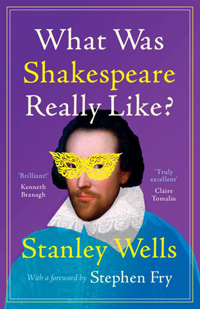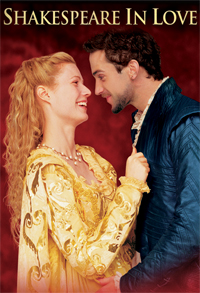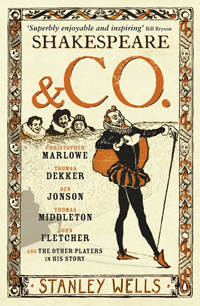There are few living Shakespearean scholars with the reputation of Stanley Wells. For nearly two decades he was Professor of Shakespeare Studies and the director of the Shakespeare Institute and remains its Emeritus Professor of Shakespeare Studies. There isn’t much he doesn’t know about Shakespeare and he has written extensively about the plays, the poetry and the man.
 His latest book has just appeared: What Was Shakespeare Really Like? This is a different kind of book. The basic details of Shakespeare’s life are well known and there perhaps is not much more to add without any crucial new discovery. It is quite a different matter to try to glean something about the man himself – there are those facts of his life, there are his plays, and there is his poetry. But how easy is it to create a picture of the true character of the author from their writing?
His latest book has just appeared: What Was Shakespeare Really Like? This is a different kind of book. The basic details of Shakespeare’s life are well known and there perhaps is not much more to add without any crucial new discovery. It is quite a different matter to try to glean something about the man himself – there are those facts of his life, there are his plays, and there is his poetry. But how easy is it to create a picture of the true character of the author from their writing?
Stephen Fry, in the introduction, claims that ‘Actors, directors, producers, lecturers, teachers, students, and all who want to know and understand more will hug this book to them.’
And actor Harriet Walter adds, ‘Having studied Shakespeare’s work for longer than any man alive, [Wells] is almost uniquely placed to do this detective work.’
But evidence is thin. In this thoughtful review by another actor, Rory Kinnear, there is the point that as we really know little about Shakespeare the man, inevitably ‘as the book progresses’, we see Wells’ ‘judgment becoming clouded with supposition.’ Nevertheless, Kinnear argues, the book is full of Wells’ ‘unwavering enthusiasm and insight.’
The book is based on a sequence of lectures, so if you would like to listen to Wells’ thoughts rather than read them, you can do so here.
Wider Shakespeare Reading and Watching
 Shakespeare’s life has also been imagined by others, of course, with reference to history but without quite Stanley Wells’ degree of scholarship. One of the most entertaining is the film Shakespeare in Love, starring Joseph Fiennes and Gwynneth Paltrow and benefiting from a witty script by Tom Stoppard. Great fun, with cameos from Christopher Marlow and John Webster!
Shakespeare’s life has also been imagined by others, of course, with reference to history but without quite Stanley Wells’ degree of scholarship. One of the most entertaining is the film Shakespeare in Love, starring Joseph Fiennes and Gwynneth Paltrow and benefiting from a witty script by Tom Stoppard. Great fun, with cameos from Christopher Marlow and John Webster!
As mentioned here, there is also Maggie O’Farrell’s fantastic novel Hamnet, in which the name Shakespeare is never mentioned. But Hamnet is the name of Shakespeare’s son and the story follows Shakespeare’s wife, here Agnes, and the short life of Hamnet. It’s a fascinating, thoughtful and moving novel.
For a detailed and engaging exploration of Shakespeare’s language, I’d recommend the surprisingly-titled Shakespeare’s Language by Frank Kermode. Marilyn French’s Shakespeare’s Division of Experience is a feminist interpretation of Shakespeare’s plays and offers thoughtful and provocative insight.
 The book by Stanley Wells I have enjoyed most is Shakespeare & Co, which looks at the theatrical world of London around Shakespeare. It is full of detailed research and anecdote about plays, theatres, acting and theatrical practice, focusing not on Shakespeare himself but the other writers around him. Some were rivals, some were collaborators, and all were working in the same milieu. It’s lively, readable and fascinating.
The book by Stanley Wells I have enjoyed most is Shakespeare & Co, which looks at the theatrical world of London around Shakespeare. It is full of detailed research and anecdote about plays, theatres, acting and theatrical practice, focusing not on Shakespeare himself but the other writers around him. Some were rivals, some were collaborators, and all were working in the same milieu. It’s lively, readable and fascinating.